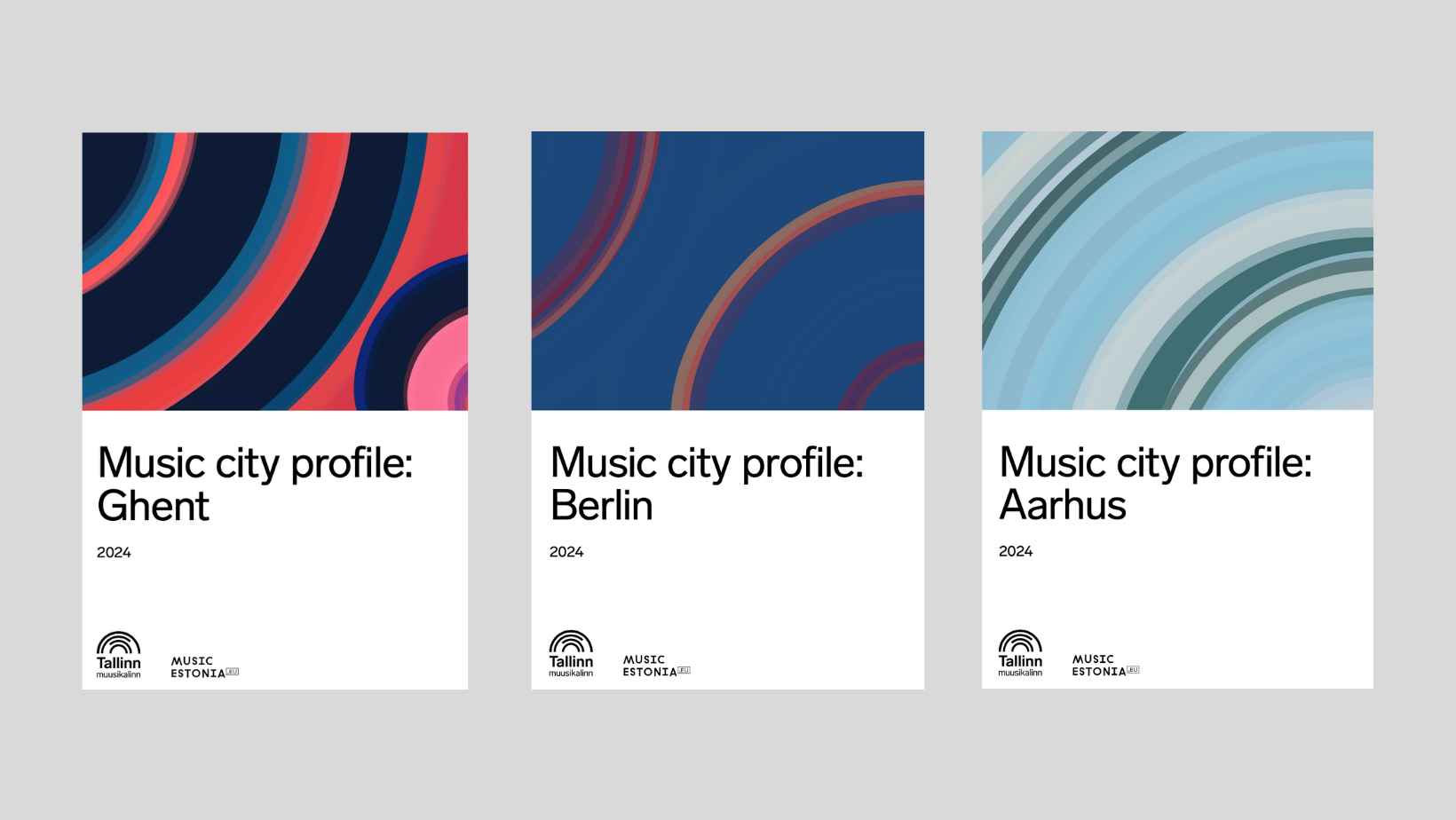News

Read about the development of music policy in Aarhus, Berlin, and Ghent
These three reports open up and describe the shaping and implementation of music policy in Aarhus, Berlin, and Ghent, and serve as a continuation of the 2023 analysis of Tallinn’s music policy. The primary aim of the reports is to take a look at the practices in other cities and find inspiring and instructive approaches to shaping the city’s music scene through policy and other activities. The reports are written in English and are based on the analysis of policy documents and other written sources, as well as interviews with professionals and officials in the music sector.
The choice of cities was determined by their active music scenes and the city’s proactive role in shaping them. Aarhus is rightly considered Denmark’s music city, with Promus, the Aarhus City Music Development Office, playing an active role in this. Aarhus is also a founding member of the Music Cities Network. Ghent is regarded as the most culturally rich city in Flanders, Belgium, and music plays a significant role in this. Ghent was one of the first cities to receive the UNESCO City of Music designation in 2009. Berlin’s vibrant music scene needs no introduction – whether it’s the Berlin Philharmonic or the recently UNESCO-listed Berlin techno club culture.
All three cities have a lot to offer. Generally, the reports show that some challenges are similar – the labyrinthine bureaucracy and slow administrative processes, as well as political volatility. In all three cities, but especially in the smaller Aarhus and Ghent, music and culture are highly valued as one of the main components of the city’s quality of life. In Aarhus, residents consider the lively cultural life to be the most important reason to live in the city. In Berlin, residents, entrepreneurs, and politicians alike understand that the city’s cultural vibrancy attracts new residents as well as the headquarters of businesses. Therefore, there is a broader and longer-term perspective when it comes to investing in culture and music. At the same time, all three cities see the players in the field as important partners and view the city’s role more as an enabler and facilitator rather than a direct cultural organizer. In all cultural policy matters, the cities’ most important role is in the development and facilitation of infrastructure. Although none of these three cities currently has a specific cultural infrastructure strategy, there is noticeable movement in that direction in all of them.
The reports are mainly descriptive, with analysis in a few places. They largely reflect the activities of the city at the level of intentions and institutional organization. Whether the policies and programs succeed in terms of outcomes and impact could be shown by specific impact analyses, which were too extensive to include in these reports. However, they provide many interesting examples of specific programs and information on the general shaping of music policy.
The studies of music policy in all three cities were conducted by Virgo Sillamaa.